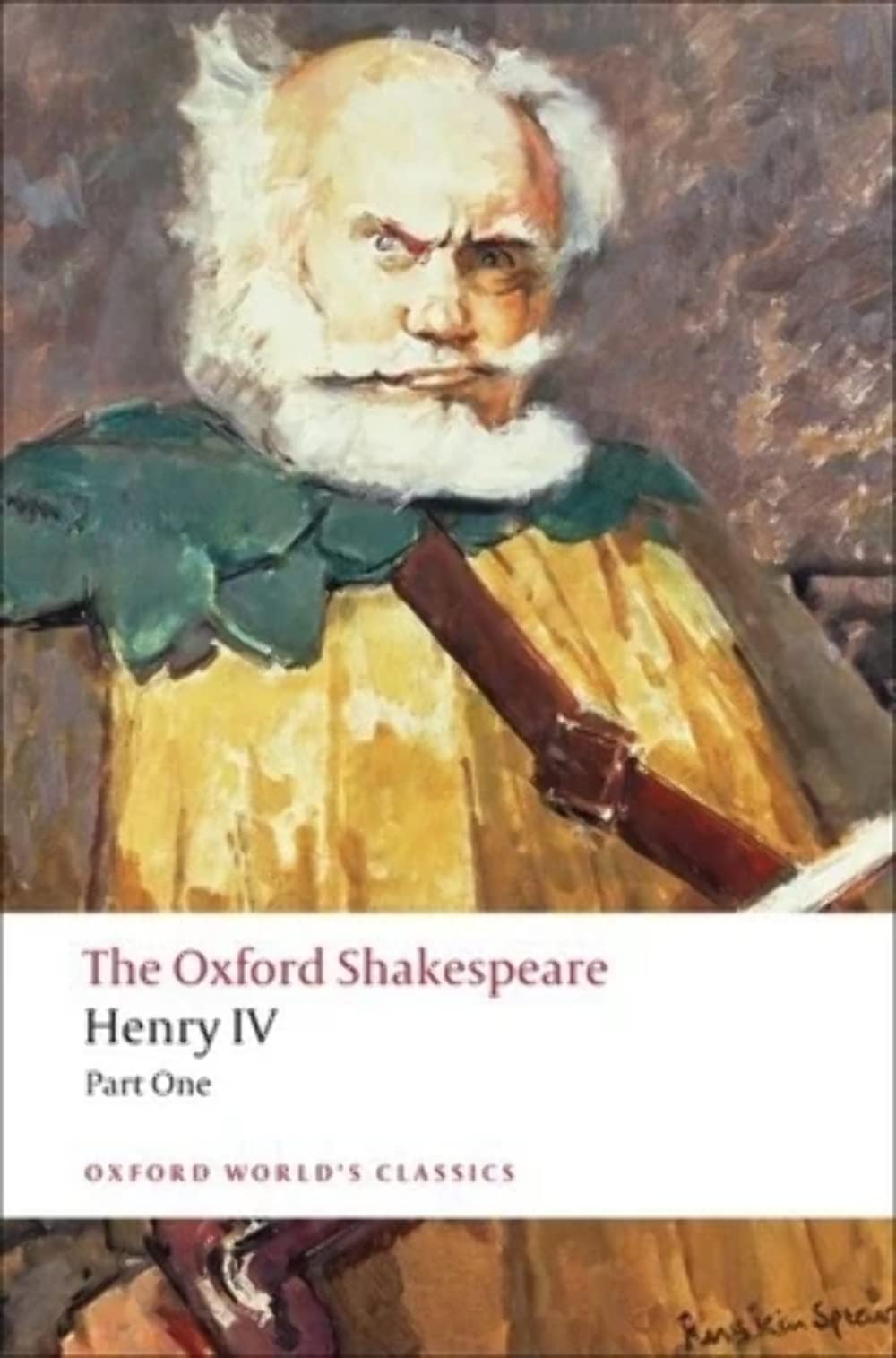معلومات عنا
دعم العملاء
احصل على التطبيق

قم بتوجيه الكاميرا لتنزيل التطبيق
حقوق الطبع والنشر © 2024 Desertcart Holdings Limited


Henry IV, Part I: The Oxford Shakespearehenry IV, Part I
P**C
Bevignton edited, that says a lot
This critical edition by Bevington is very comprehensive, even taking in its sweep Tillyard's Elizabethan World Picture
K**N
Five Stars
Good condition.
J**S
Old coin, but still current
By curious coincidence, I finished reading this edition of 1 Henry IV on the same day that news emerged of the discovery of a First Folio in a French library (see The Guardian on-line, 26.11.14). In the article, it was argued that the heavily annotated pages of its section given to 1HIV arose from an early production of that play. In his 'Play in Performance' section, David Bevington may have been 27 years too late to benefit from this discovery, but his discussion of the play's stage history is still current nonetheless. Before entering into specific details of performance, he talks in general terms of the creative possibilities the play offers a modern director, with its alternating pattern of serious and comic scenes, and with its numerous parallels (like the two interview episodes involving Prince Hal, for example). 'The parallels', suggests Bevington, could be 'reinforced by positioning, and by gestures such as kneeling.' It all sounds very up-to-date.Nor does this edition seem any more outmoded elsewhere. Bevington provides a full discussion of those aspects of the play that have attracted contemporary interest – identity, ambivalence and irony, among others. For example, he views the games-playing nature of the Hal/Falstaff relationship, with its masquerading and name-calling, as both 'instructive' and a means of 'testing identity'. Falstaff's highway-robbery, meanwhile, both parallels and contasts with the conduct of Bolingbroke (now King Henry IV). And this too is instructive: Hal learns that 'thievery is part of the political story', while both Gad's Hill the Percy rebellion enable us to see 'the ironic pattern of the robber robbed.'Bevington's edition is extremely thorough – nowhere more so than in the sometimes gruelling account of the text. This is probably not a section on which most readers will want to focus, but it is both neatly summarised (Q1 holds pretty much all the aces) and forthright. Gary Taylor's argument that modern editors of the play should respect Shakespeare's intentions and restore Falstaff's original name of Oldcastle, is confronted. It isn't just sentiment or tradition that persuades Bevington to retain the name Falstaff. For whatever reason, he argues, Shakespeare changed his mind.It's difficult to see how either text or intro could be improved upon. Until further scholarship or future discoveries arrive, at least.
H**S
es hat lange gedauert
Es hat lange gedauert ehe ich das Buch bekam. Das kann aber auch daran liegen, dass die belgische Post heutzutage schwierigkeiten empfindet.
A**R
Arrived promptly
Arrived promptly and was exactly what was expected
ترست بايلوت
منذ أسبوعين
منذ أسبوع